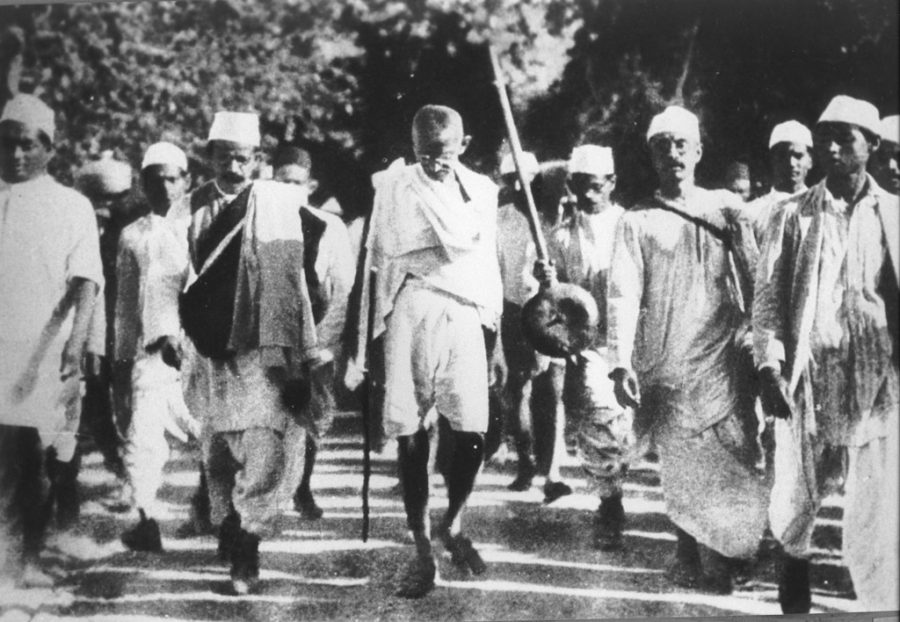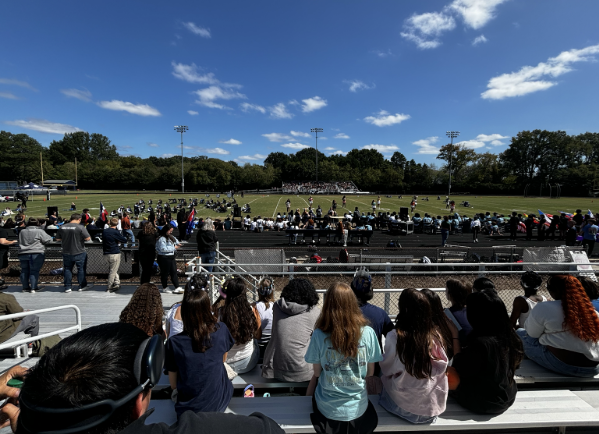Remembering Gandhi on the anniversary of his death
Gandhi leads many people who looked up to him as an influencer in a peaceful protest. One form of a passive resistance protest that he helped lead was the Salt March which resulted in the arrest of nearly 60,000 people, including Gandhi himself.
January 30, 2019
You may have heard the name Gandhi before, but do you know what he has achieved? Mahatma Gandhi was a well known social activist, lawyer, writer, and politician; starting in early 1893 through his death in 1948. He was a leader in the movement for India to become independent from Great Britain, which was called the Indian Freedom movement. One of the ideas he is known for is nonviolent philosophy and passive resistance. He was commonly referred to as “the great-souled one,” which many of his followers called him. One of his accomplishments included the Salt March, and he is also known for his great contribution toward the Indian freedom movement.
Gandhi faced a lot of discrimination as an Indian immigrant. For example, one time during a train voyage, he was thrown out of a first-class railway compartment and was beaten up by a white stagecoach driver because he refused to give up his seat for a European passenger. This event was a turning point for him. After this, he began to develop the concept of satyagraha, which means truth and firmness. This is also known as passive resistance or as a way of not cooperating with authorities. Passive resistance is more formally known as a way of showing you opposition in a peaceful way.
Gandhi began a series of hunger strikes in protest of the British government’s decision to separate India’s electoral system by following the caste system. The caste system is a social class structure that is determined by birth; this means that whichever class you were born into, is the class that you are going to stay in the rest of your life. The decision made by the British government awarded the lowest class, the “untouchables,” their own political representation. Gandhi believed that this would cause India to permanently divide their social classes. He advocated for the basic human right and for the emancipation of the untouchables, whom he called Harijans, which means Children of God. After Gandhi’s commitment and his six-day fast, the British government agreed to reverse the separation decision.
Sadly, this all came to an end when a Hindu extremist, Nathuram Godse, shot and killed Mahatma Gandhi on the way to his prayer meeting in New Delhi on January 30, 1948. Sophomore Penelope Williams said, “I think that Gandhi inspired so many other past and current activists who learned from his teachings and his beliefs of peaceful protest.” Gandhi inspired so many people, including John Lennon, Barack Obama, Steve Jobs, and Martin Luther King, Jr.












